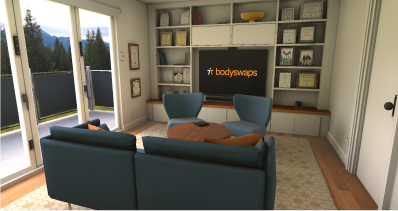Negotiation and Conflict Management: Gaining Influence and Value
Tutor Notes
Negotiating with someone who appears to have more power than you can often feel like an uphill battle, and lead to unhelpful approaches. For example, trying to be convincing, seeking a compromise, or conceding to the other side. The result is often frustration, disappointment, and missed opportunities all around.
This immersive training module helps students discover the secret to navigating these types of negotiations. That is: offering things that fulfil the other side’s interests and helps to increase influence.
By shifting their approach from trying to win or take what they can get, onto finding out how they can offer resources in exchange for what they want, students will enter future negotiations feeling better equipped to get the best outcome – for everyone involved.
About this resource
Key learner outcome and goals
Learning Outcome
To feel more comfortable extracting value from a negotiation from a low power position
Learning Goals
- Understand sources of influence in negotiations
- Discover tangible and intangible interests
- Gain influence by adding issues and value to negotiations
- Use self-coaching to boost your confidence in gaining influence
A word about terminology
As a medium, Virtual Reality is not best suited to didactic teaching methods.
However, our intention is that all Bodyswaps modules follow a student-centred constructivist pedagogy. This means creating rich experiences in which learners can explore key concepts and ideas and reach their own conclusions.
This is why our documents speak in terms of learning goals and outcomes, rather than measurable ‘learning objectives’ (a la Bloom’s Taxonomy) per se.
Module structure
The complete journey takes the learner through 4 interactive topics, led by virtual coaches Zak and Amira, as well as ancillary activities such as self-reflection, and the exit survey.
If this is the learner’s first experience of a bodyswaps module, they will also complete a brief induction to familiarise them with the features of the app and prepare them for the experience to come.
It is a linear experience, meaning the learner will be guided step by step through all the activities by the coaches.
We recommend that learners fully interact with each activity to get the full benefit.
It is estimated that each topic will take the learner approximately 5-10 minutes to complete, although completion times vary depending on whether the learner chooses to repeat topics to explore different options (encouraged) or fine-tune their freeform responses.
Learner Journey
.svg)
.svg)
- Freeform interaction
- Scaffolded conversation interaction
.svg)
observation
interaction
.svg)
conversation
interaction
.svg)
.svg)
.svg)
.svg)
Characters
Virtual mentor


Zak
Virtual mentor
Alexis Taylor
Social media manager at Sophia Carter Interiors
Mateo Torres
Product design manager at Sophia Carter InteriorsLearning Environments

Tutor Room
Courtyard
Informal meeting room
Purpose
Familiarise learners with the controls and navigation
Location
Characters
N/A
Duration
3:00
The first time learners use Bodyswaps, this onboarding sequence familiarises them with the features of the app, takes them through an avatar selection and embodiment activity, and prepares them for the experience to come.
In the induction, learners will:
- Find out how this training is different from the rest
- Select their avatar
- Discover their virtual journal
- Learn how to navigate and use the tools and settings
Purpose
Introduce the module and reflect on current confidence levels before beginning the activities
Location
Characters
Duration
The module begins with Zak and Amira, the virtual coaches, pondering about how difficult it can feel negotiating with people who seem to hold all the cards. However, Amira explains that we often have more power going into negotiations than we think.
They set out the learner’s goals for the module, and reveal that they’re going to explore strategies for increasing influence in negotiations and pursuing better outcomes.
Then, they invite the learner to complete a short likert-style self-reflection survey, to indicate how confident they feel about the following key learning points:
- Understanding sources of influence in negotiations
- Discovering tangible and intangible interests
- Gaining influence by adding issues and value to negotiations
These self-reflection questions will be repeated in the debrief at the end, to assess how the learner’s confidence levels have changed.
Note: If you wish to receive data about how the learner’s confidence levels have changed as a consequence of the training, it’s important that they complete this introduction and the debrief at the end.
Purpose
Help learners explore their understanding of power and influence in negotiations
Location
Characters
Zak and Amira
Journal
Duration
This topic starts with a freeform activity, where the learner is invited to speak aloud – in their own words – to describe how they perceive and approach negotiations where the other side seems to have all the power.
This helps activate working memory and connect them to the learning to come. It also supports a reflective activity at the end of the module, where the learner shares what they would do differently with their newfound knowledge.
Amira explains that the challenge of negotiating with someone like your boss often comes from feeling like everything hinges on how persuasive you can be. But in reality, the trick to getting a great outcome is knowing how to increase your influence.
To explore this, the learner then takes part in a quiz activity. The coaches describe various negotiation scenarios, and the learner chooses a response to say who they think has the potential to be more influential. With each response, the coaches reveal who does or doesn’t – and why.
The learner may be surprised to see that, in many cases, it isn’t just managers or clients who hold all the cards.
If they wish, the user can learn more about the sources of influence that they saw in the example scenarios (formal authority, a strong BATNA, understanding others’ interests, and control over resources) with Zak and Amira.
Then it’s time for the learner to explore how to discover others’ interests for themselves.
Purpose
Raise awareness of how tangible and intangible interests can emerge in negotiations
Location
Tutor room, courtyard
Characters
Zak and Amira, Alexis and Mateo
Duration
In this topic, Zak and Amira share how everyone has the power to discover others’ interests and “expand the pie” in negotiations. Figuring out the other side’s wants and needs and offering things to fulfil them, adds something new to the agreement, meaning that there’s more “pie” to share between them.
They also explain that, when discovering interests, it helps to know the two forms they can take: tangible (money, benefits, terms of a contract, etc.) and intangible (wanting respect, trust, good relationships, etc.)
It’s then time for the learner to practise picking up on interests that could help boost their influence in a negotiation. In this observation activity, they imagine they’ve just landed a job at an interior design company. As their new manager Alexis and her colleague Mateo chat about their growing teams, the learner listens in to their conversation, seeking to identify the interests that Alexis reveals.
Visual feedback is provided in real time on a screen to indicate if the learner correctly identified an interest, and a panel of buttons at the end indicates which interests they did and didn’t spot. Clicking on a button rewinds the conversation to when Alexis revealed that interest, and provides text feedback about why discovering it better equips the learner to negotiate.
For example, Alexis makes it no secret that she wants a close-knit team. A team-building opportunity would therefore be of great interest to her. So, if the learner could offer that in exchange for what they want, it would increase their influence in a negotiation with her.
Purpose
Practise pursuing value-increasing opportunities in a simulated negotiation
Location
Tutor room, informal meeting room
Characters
Zak and Amira, Alexis
Journal
Duration
Now equipped with the knowledge of her interests, the time has come for the learner to practise gaining influence and value in a negotiation with Alexis. In their new role at Sophia Carter Interiors, they’ve discovered an opportunity to go to an interior design exhibition. But time is tight, so they’ve got to negotiate with Alexis to attend as much of the event as they can.
During this evaluated conversation activity, the learner negotiates with Alexis in a series of exchanges by selecting their responses from three options. If the learner chooses responses that use Alexis’ interests and get creative with adding issues (offering things that she may want in exchange for what they want), their prospects for attending the whole event will look increasingly promising.
However, if they take convincing or compromising approaches, they’ll elicit frustration or less valuable agreements from Alexis.
After each answer, text feedback and an on-screen visual graphic reveals whether they successfully “expanded the pie”, or whether they used less effective approaches.
Branching leads the learner to different outcomes depending on their choices. If they do well with adding issues and tapping into Alexis’s interests, she’ll agree to let them attend more of the event and gain things she wanted. But if not, the learner ends up attending little to none of the event and leaves Alexis with little value of her own.
After some closing insights from the coaches – tailored to the outcome of the negotiation – the learner is welcome to try the activity again to explore the other outcomes.
Purpose
Give the learner an opportunity to reflect on how comfortable they now feel negotiating in low power positions
Location
Tutor room
Characters
Zak and Amira
Journal
Duration
With the module drawing to a close, the coaches point out that they won’t be around in real life to help the learner with their negotiations. So, they’d like them to now become their own mentor.
In this final, freeform activity, the learner has an opportunity to describe what they would do differently in negotiations compared to when they started the course. How would they approach them going forward with their newfound knowledge and experience?
They can look over the transcript from their answer in the first topic if they wish, to compare their earlier thoughts to how they feel now.
After speaking in their own words, the learner then swaps bodies with Amira to listen back to their answer. AI-enabled analytics pick up on whether they said any of the keywords that match the approaches explored throughout the module (such as ‘discovering interests’ or ‘adding issues’).
Offering some final words of wisdom, Amira and Zak explain that giving advice to yourself in this way is powerful because of a phenomenon known as Solomon’s paradox. We often give others better advice than we do ourselves. So, if the learner ever needs reassurance about how to approach negotiations in the future, they can use this strategy of self-coaching to guide their decisions.
These self-affirmations will also help consolidate what they’ve learnt and leave them with a boosted sense of confidence in their ability to be influential in negotiations – whatever their position or status.
Purpose
Debrief the learner upon completion of the training and prompt self-reflection
Location
Tutor room
Characters
Zak and Amira
Journal
N/A
Duration
Zak and Amira congratulate the learner for completing their journey through this negotiation skills module. They provide some closing thoughts on how learning the interests of those you’re negotiating with, and adding new ideas to the table that help fulfil these, is a powerful way to boost your influence and gain better outcomes for everyone.
Now, the learner is invited to take the same likert-style survey from the beginning, to encourage them to reflect and self-report on their confidence levels following completion of the training.
The questions relate to how confident they now feel about the key learning points:
- Understanding sources of influence in negotiations
- Discovering tangible and intangible interests
- Gaining influence by adding issues and value to negotiations
Purpose
Assess the effectiveness of the training itself
Location
N/A
Characters
N/A
Journal
N/A
Duration
1:00
Before the learner leaves the module, they are asked to complete a short survey about their experience.
This survey is not compulsory, but the data helps us to assess the effectiveness of our product and identify any areas that need improvement. Clients also find it beneficial when assessing ROI.
They are asked to mark whether they agree or disagree with the following statements, on a 10 point scale:
- I would recommend this experience to others
- The experience helped me identify elements I could improve upon
- I now have a better understanding of how to gain influence and value from negotiations by discovering interests and adding issues
